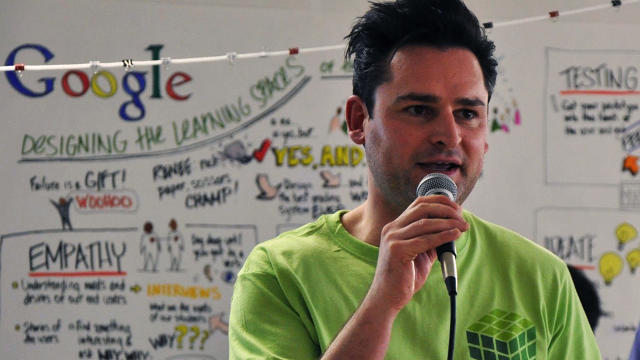How Escape Rooms, CSI:Labs, And Comedy Can Train Staff To Be Better At Their Jobs
Workplace training often feels like something to check off a to-do list. Companies spend about $130 billion each year on corporate education, according to a study by Bersin by Deloitte, yet research has found that the average adult forgets 40% of what they’ve learned after just 20 minutes, and 64% by the next day.
Four companies have adopted some unusual ways to train employees on everything from technology to culture to get a better return on the investment. From comedy to DIY, these unique methods get employees to expand their skillsets while having fun.
Escape Room
Asurion, a Nashville-based mobile technology company, has created a unique training program for its new tech recruits using the popular Escape Room style. The company set up a space that includes a living room and kitchen that holds a series of connected digital devices that are all locked. To unlock and escape the room, the employees have to troubleshoot and reconfigure the devices so that they work properly. And they have 45 minutes to complete the task.
“This training gives hands-on experience with the most popular connected devices with the goal of being able to provide knowledge- and experience-based tech support,” says Vincent Phamvan, senior director of innovation. “It also instills a sense of patience, empathy, and a team mentality, which is equally important to providing tech support to consumers,” says Phamvan. “Most of all,’ he adds, “this training is fun.”
Improv
Using the art of improvisation, The Second City has launched dozens of comic careers. The nimble form of communication is helping employees at Bluecore, a New York City-based email marketing platform, become more successful, too.

CEO Fayez Mohamood took an improv class for fun and was surprised how the experience helped his professional life. “It was one of the best things I’ve done; it’s on par with the professional education I took in engineering,” he says.
He decided to make improv lessons an employment requirement, and each quarter an instructor comes to their office to work with employees. “Improv teaches you how to communicate and articulate well,” says Mohamood. “It’s your goal to share your agenda to another person in room, and it’s common to see an engineer, for example, ramble on.”
Improv also helps people get comfortable dealing with ambiguity. “When you get on stage not knowing what story is and having new things thrown your way you have to be creative and come up with solutions on the fly,” he says.
Improv also gets people working as a team. “You have to collaborate and make eye contact, he says. “It’s saying ‘Yes and …’ instead of creating objections.”
Build-Your-Own Workspace
Employees of the Seattle-based startup OfferUp, a mobile marketplace for local buying and selling, start their first day by assembling their own desk and chair. From entry to C-level, employees unpack the box, gather tools, and build their workstation.

“It maps back to the company’s ‘all hands on deck’ work culture,” says CEO and cofounder Nick Huzar, who adds that the exercise started out of necessity. “As a small startup, I was tired of building all of the desks and chairs,” he says.
In addition to getting a hands-on lesson on employee culture, the task has some side benefits. “Usually what happens is that the rest of the team comes over, says ‘hi’ and offers to help. But it’s really about setting the tone that everyone’s expected to roll up their sleeves and get dirty.”
Creativity Labs
Google is known for its education programs, as well as the now-defunct initiative that allowed staff to use 20% of their work time to pursue projects and learning opportunities that are important to them. To boost creative problem-solving skills, the company started CSI:Lab in 2010.
CSI stands for “Creative Skills for Innovation” and is held through its “Googlers-to-Googlers” program, in which Google employees teach other Google employees about topics that interest them.
“CSI:Lab is all about reaching an end goal through brainstorming, getting your hands dirty and an ‘ensemble’ performance,” writes Frederik G. Pferdt, Google’s global program manager for innovation and creativity, on the company blog.
Pferdt started CSI:Lab to show coworkers how to “experience innovation.” “I wanted to get a diverse group of people together in one room to solve challenging problems by learning from each other’s experiences, and by developing their own inner strengths. The goal was to enable Googlers to experience an approach to innovation where one learns by doing, rather than by listening,” he writes.

During each class, groups are tasked to answer a challenge, such as: “How would you change the commuting to work experience?” The process involves taking surveys, posting ideas to a white board and ultimately choosing one idea for expansion. Employees are then provided with an array of building materials that include Play-Doh, pipe cleaners, LEGO blocks, and feathers, and are asked to create a physical prototype.
The learning method helps employees understand where inspiration comes from so you can replicate it, writes Pferdt. It also encourages employees to think like a child, questioning the things around you, dive into something new, share your knowledge and perspective, seek out unusual materials when developing an idea, and invest in your physical space.
“Having a supportive environment can make a big difference, so learn what types of space inspire creativity,” he writes.
The success of CSI:Lab led Google to offer the program to employees worldwide. “One Googler told me that after the Lab, he used his experience to develop a prototype for a solution to one of his team’s issues,” writes Pferdt. “He described how good it felt to take a risk to reach a solution, and ultimately he convinced a team of other Googlers to work with him to refine and implement his idea. Ultimately, seeing these ideas absorbed by participants and put to use within the company is what CSI:Lab is all about.”
Fast Company , Read Full Story
(48)






